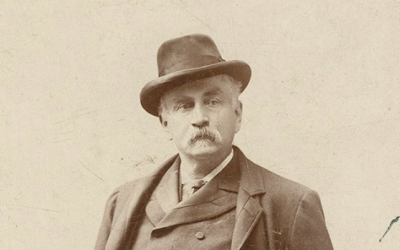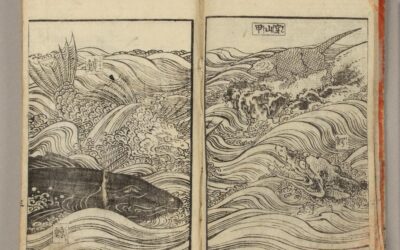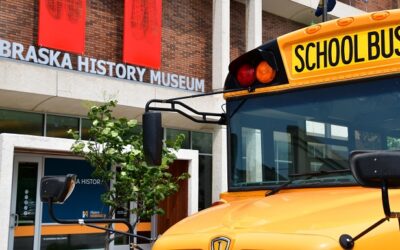The Republican Party announced in July 1900 that Theodore Roosevelt, its vice-presidential nominee, would visit Nebraska that fall. Local Republicans were convinced that this strategy would enable the GOP to overturn William Jennings Bryan’s 1896 plurality of thirteen thousand votes. Nebraska History magazine (Fall 1992 issue) reported on the memorable trip, during which Roosevelt made stops in over forty Nebraska towns during a four-day period. More than 300,000 Nebraskans, more than a quarter of the state’s population, saw and heard him.
Roosevelt began his tour of Nebraska on October 1 when he appeared at Falls City. The first day Teddy’s train traversed southern Nebraska, stopping at ten towns between Falls City and McCook and appearing before an estimated thirty thousand people. The grueling schedule continued on October 2 as he crossed central Nebraska from North Platte to Plattsmouth on the Missouri River. The highlight of that day was his appearance in Lincoln to review a “monster” parade.
The next morning the governor awoke in Broken Bow, stopped in five more Nebraska communities before detouring briefly into South Dakota, and on his final day cap his Nebraska tour with appearances at five different sites in Omaha.
Two primary issues upon which the campaign revolved–prosperity and America’s role in the Philippines–were constant themes of Roosevelt’s talks. Addressing audiences for between five and twenty minutes, depending upon his schedule, Roosevelt characterized Bryan’s 1896 prescriptions for what ailed the American financial system as “quack medicine.”
Roosevelt’s appearances in Nebraska, if nothing else, enlivened the campaign. Although every newspaper argued about the candidate’s effect on crowds, the primary physical attribute discussed in the state press was Roosevelt’s teeth and the expansive smile, “which out’Bryan’s Bryan more than 16 to 1.”
Whether the excitement he brought to the state translated into votes is debatable. The prosperity enjoyed by many Nebraska voters at the time probably induced them to vote their pocketbooks and keep Republican William McKinley in the White House.



